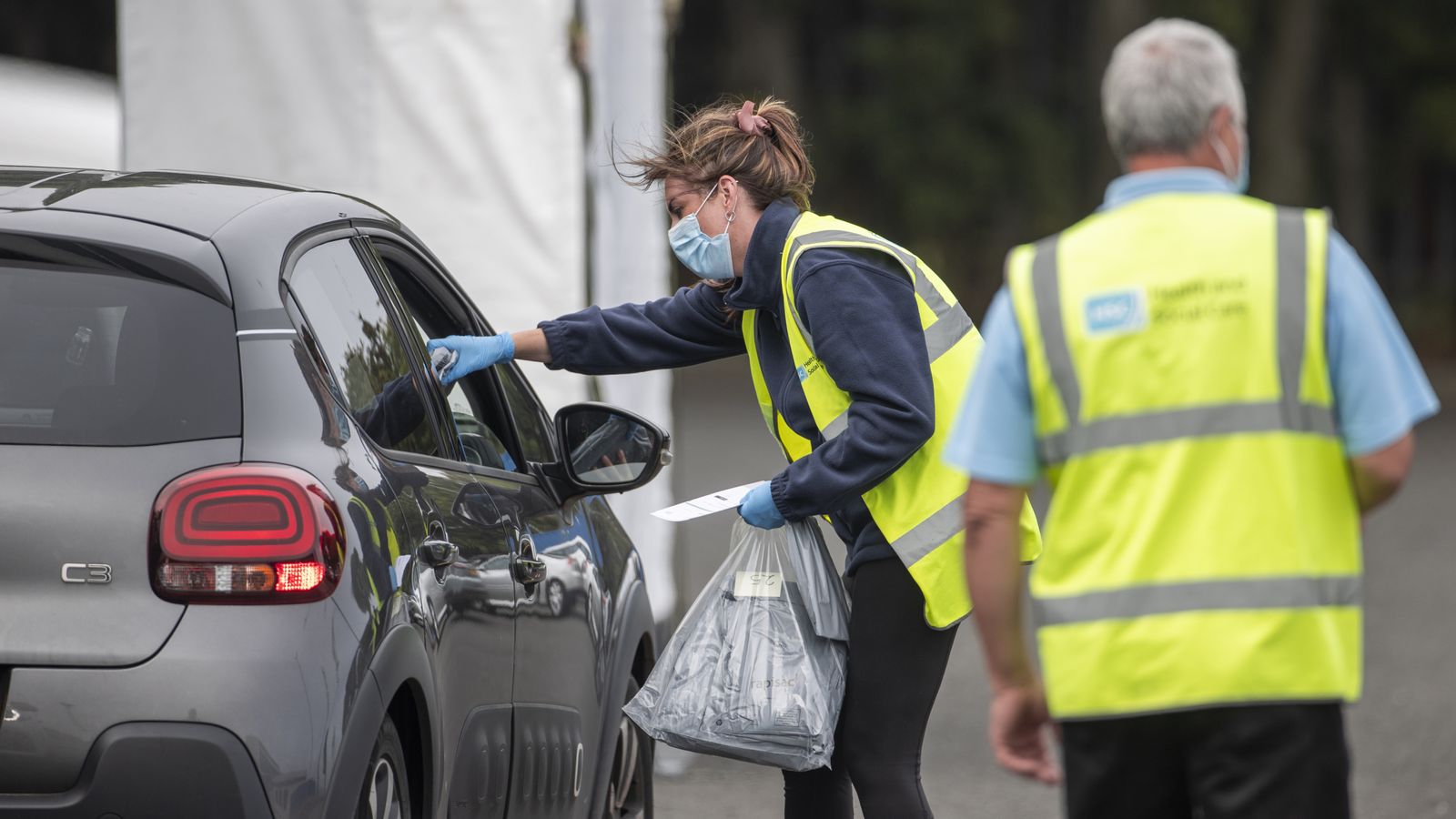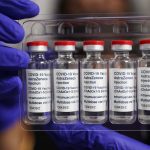The UK has recorded 36,480 new COVID-19 cases and 137 more coronavirus-related deaths in the latest 24-hour period, according to government data.
The figures compare with 36,722 infections and 150 fatalities reported on Wednesday, while 36,710 cases and 182 deaths were announced this time last week.
It is now the 11th straight day where new infections have been over 30,000.
Since the start of the pandemic early last year, 136,662 people have died in the UK within 28 days of a positive COVID test.
Separate figures published by the Office for National Statistics show there have been 161,000 deaths registered in the UK where COVID-19 was mentioned on the death certificate.
There are currently 6,853 patients in hospital with COVID.
Another 31,539 people received their first dose of a coronavirus vaccine on Wednesday, taking the total to 48,829,118 (89.8% of over-16s).
COVID news live: Job losses ‘part of the process of coming out of pandemic’ – as study recommends how to prevent long COVID in children
Coronavirus: Giving children two vaccine doses could prevent thousands of long COVID cases, study suggests
COVID-19: Warning of redundancies as £70bn furlough scheme ends
And 34,093 had their second jab, meaning 44,867,373 are fully vaccinated (82.5%).
It comes as the latest Test and Trace figures revealed the number of people testing positive for the virus has jumped 18% in a week.
Some 191,771 people tested positive at least once in the week to 22 September, up from 162,400 the previous week, according to the figures.
It was the largest week-on-week percentage increase since mid-July, which was the last time England saw a major spike in COVID cases.
However, the latest numbers are well below the level reached during the second wave of the virus.
Test and Trace figures peaked at 390,280 cases in the week to 6 January.
The latest spike saw the number hit 309,422 in the week to 21 July.
Meanwhile, a study has suggested that thousands of long COVID in children could be prevented if they are given two vaccine doses.
Children between 12 and 15 are now being offered a single dose of the Pfizer jab to reduce their chance of catching the disease and passing it on.
But the study looked at 12 to 17-year-olds getting both shots and concluded the benefits outweighed the risks “unless case rates are sustainably low”.






















